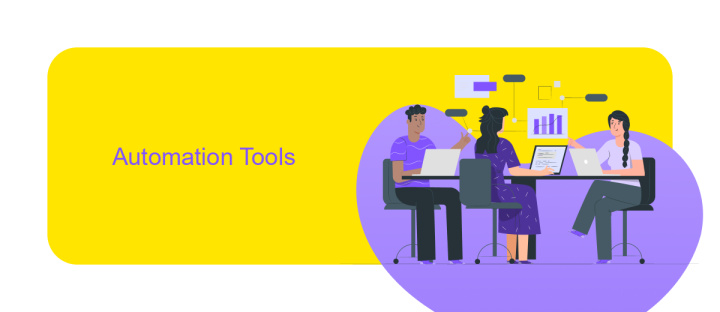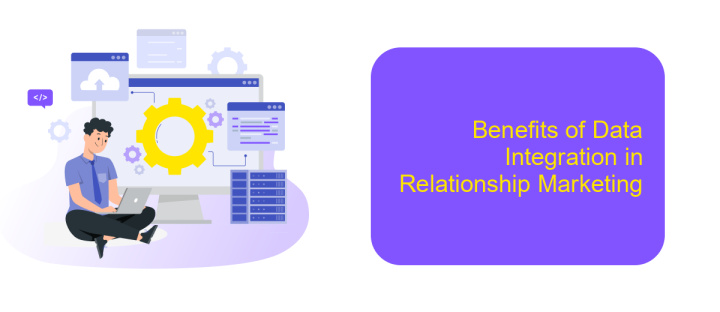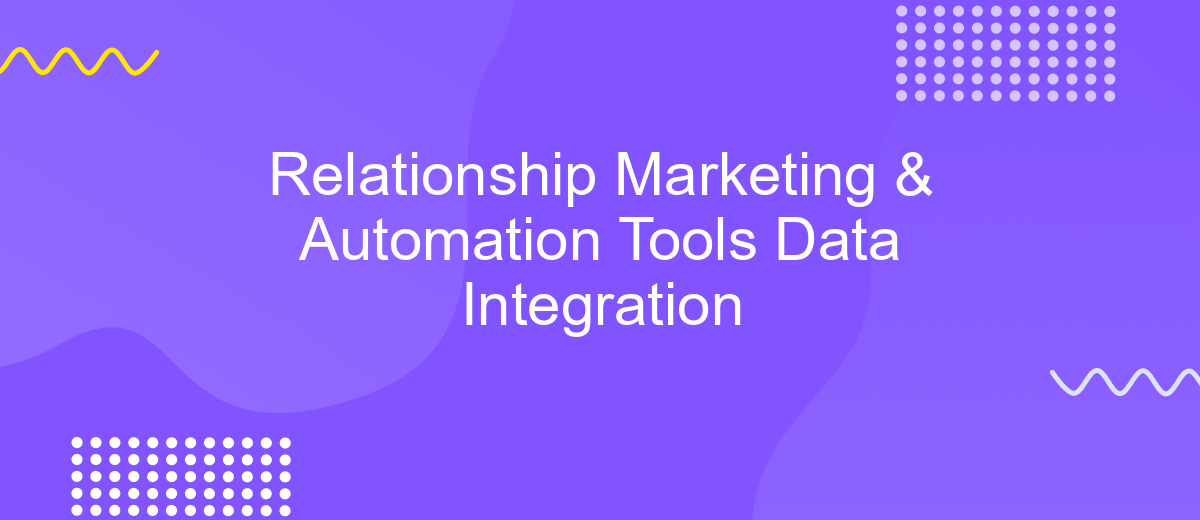Relationship Marketing & Automation Tools Data Integration
In today's competitive business landscape, relationship marketing has emerged as a pivotal strategy for fostering long-term customer loyalty. Integrating automation tools with data analytics can significantly enhance this approach, enabling businesses to personalize interactions and streamline communication. This article explores the synergy between relationship marketing and automation tools, and how data integration can drive more effective customer engagement and sustainable growth.
Relationship Marketing
Relationship marketing focuses on building long-term connections with customers rather than short-term gains. This strategy emphasizes customer retention, satisfaction, and lifetime value. By nurturing these relationships, businesses can create loyal customers who are more likely to return and recommend their services to others. This approach contrasts with traditional marketing, which often prioritizes immediate sales and short-term metrics.
- Enhances customer loyalty and retention
- Increases customer lifetime value
- Encourages word-of-mouth referrals
- Provides personalized customer experiences
- Builds trust and credibility
Implementing relationship marketing requires a deep understanding of customer needs and preferences. Businesses must leverage data analytics and customer feedback to tailor their offerings and communications. Automation tools can significantly aid in this process by streamlining customer interactions and providing valuable insights. Ultimately, a well-executed relationship marketing strategy can lead to sustainable growth and a competitive edge in the market.
Automation Tools

Automation tools are essential for streamlining relationship marketing efforts, enabling businesses to manage customer interactions more effectively. These tools facilitate the automation of repetitive tasks such as email marketing, social media posting, and customer segmentation, allowing marketers to focus on strategy and creative aspects. By integrating CRM systems with automation platforms, companies can ensure a seamless flow of data, leading to more personalized and timely communication with customers.
One such tool that aids in data integration is ApiX-Drive. ApiX-Drive simplifies the process of connecting various marketing and CRM platforms, ensuring that data is synchronized and up-to-date across all channels. This integration capability allows businesses to automate workflows without the need for extensive coding knowledge, making it accessible for teams of all sizes. By leveraging ApiX-Drive, companies can enhance their relationship marketing strategies, ensuring that every customer interaction is meaningful and data-driven.
Data Integration

Data integration is a crucial aspect of relationship marketing, enabling businesses to consolidate information from various sources into a unified view. This process ensures that all customer data, whether from social media, email campaigns, or CRM systems, is seamlessly integrated to provide a holistic understanding of customer interactions and preferences.
- Identify data sources: Determine all the platforms and channels where customer data is collected.
- Data mapping: Establish a common schema to ensure consistency across different data sets.
- Data cleaning: Remove duplicates and correct inaccuracies to maintain data quality.
- Data transformation: Convert data into a usable format that aligns with your marketing tools.
- Data loading: Import the cleaned and transformed data into a central repository or marketing automation tool.
Effective data integration enhances the accuracy of customer profiles, enabling personalized marketing strategies and improved customer engagement. By leveraging integrated data, businesses can create more targeted campaigns, track performance more effectively, and ultimately foster stronger customer relationships.
Benefits of Data Integration in Relationship Marketing

Data integration in relationship marketing is pivotal for creating a seamless customer experience. By consolidating data from various sources, businesses can gain a comprehensive view of their customers, enabling more personalized and effective marketing strategies. This integration facilitates real-time insights, allowing marketers to make informed decisions and respond promptly to customer needs.
Moreover, data integration helps in breaking down silos within an organization. When departments such as sales, marketing, and customer service share the same data, it fosters collaboration and ensures consistency in customer interactions. This unified approach not only enhances customer satisfaction but also drives brand loyalty and long-term engagement.
- Enhanced customer insights and personalization
- Improved decision-making with real-time data
- Increased operational efficiency and collaboration
- Consistent and unified customer experience
- Greater customer satisfaction and loyalty
In conclusion, integrating data in relationship marketing is essential for any business aiming to build strong, lasting relationships with their customers. It not only streamlines operations but also empowers marketers to deliver tailored experiences that resonate with their audience, ultimately leading to better business outcomes.
- Automate the work of an online store or landing
- Empower through integration
- Don't spend money on programmers and integrators
- Save time by automating routine tasks
Best Practices for a Successful Data Integration
Effective data integration begins with a clear understanding of your business needs and goals. Start by identifying the specific data points that need to be integrated and the systems involved. Ensure that data formats are compatible and establish a standardized protocol for data exchange. It's crucial to maintain data quality by implementing validation rules and regular audits. Leveraging automation tools like ApiX-Drive can significantly streamline the integration process, reducing manual work and minimizing errors.
Another best practice is to prioritize security and compliance. Protect sensitive data by employing encryption and access controls. Regularly update your integration systems to safeguard against vulnerabilities. Additionally, maintain comprehensive documentation of your integration processes and workflows. This not only aids in troubleshooting but also ensures continuity in case of personnel changes. Lastly, continuously monitor and optimize your integrations to adapt to evolving business needs and technological advancements, ensuring long-term success.
FAQ
What is relationship marketing and why is it important?
How can automation tools enhance relationship marketing efforts?
What are the benefits of integrating data from various marketing tools?
How can ApiX-Drive help with data integration for marketing automation?
What are some common challenges in relationship marketing and how can they be addressed?
Apix-Drive is a universal tool that will quickly streamline any workflow, freeing you from routine and possible financial losses. Try ApiX-Drive in action and see how useful it is for you personally. In the meantime, when you are setting up connections between systems, think about where you are investing your free time, because now you will have much more of it.


